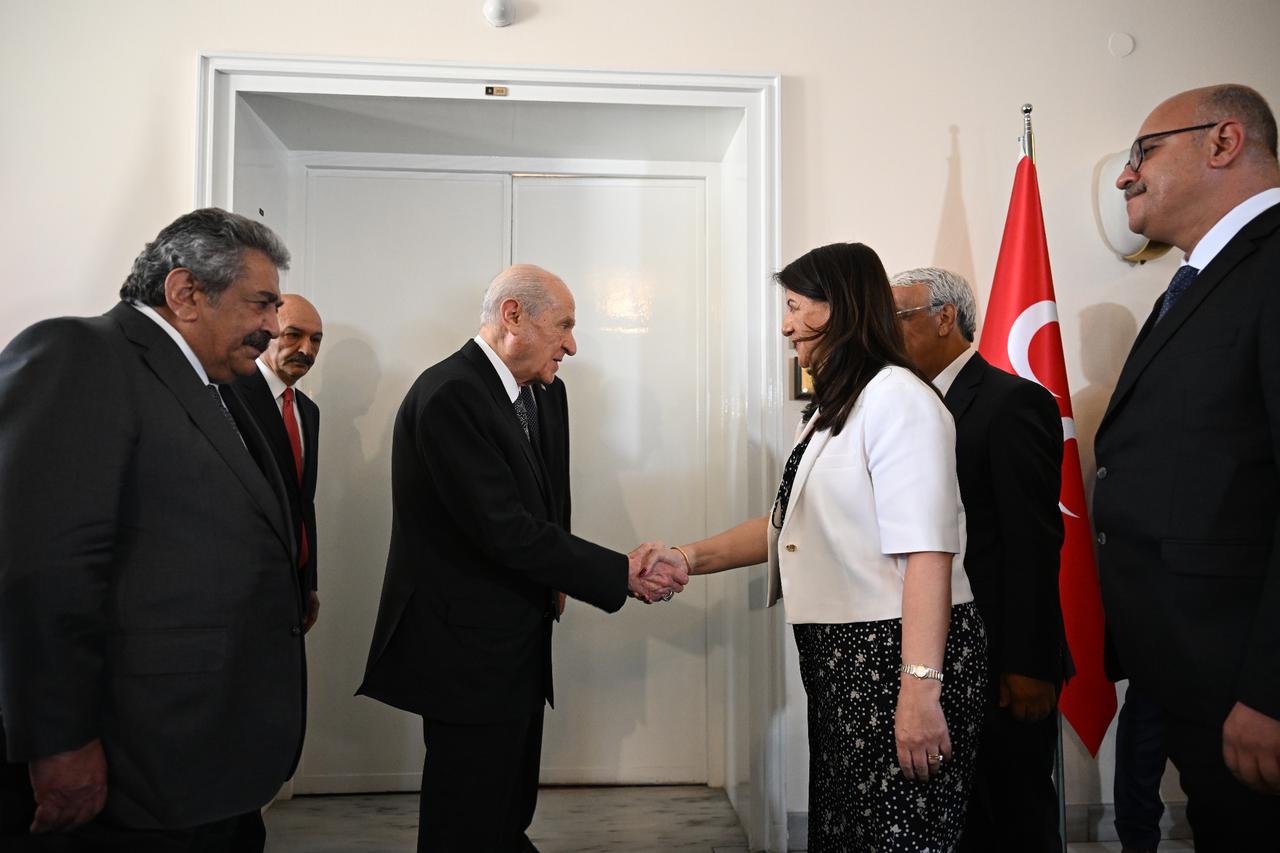
On Wednesday, a delegation from the pro-Kurdish Peoples' Equality and Democracy Party (DEM Party) held a key meeting with Nationalist Movement Party (MHP) leader Devlet Bahceli in Ankara, as part of ongoing political consultations in Türkiye.
Bahceli welcomed the delegation personally at the entrance—an unusual gesture seen as signaling a more open stance.
Speaking after the meeting, DEM Party senior figure Pervin Buldan told reporters: "We thank Mr. Bahceli and his team for accepting our request. It was a positive and constructive meeting. We informed them about the current process, and once again heard Mr. Bahceli’s supportive views."
Buldan underlined that inter-party dialogue would continue and stressed the importance of cooperation during the upcoming commission stage: "We believe there is a need for mutual support at every step of this process," she added.
The meeting followed Wednesday’s talks between the DEM Party and Justice Minister Yilmaz Tunc, where legal and political matters—including the status of Selahattin Demirtas—were reportedly discussed.
The DEM delegation is expected to meet with the main opposition Republican People’s Party (CHP) leader Ozgur Ozel on Friday. However, no meeting with President Recep Tayyip Erdogan is scheduled for this week.
Sources indicate that the DEM Party may be preparing for a possible visit to Imrali Island, where the PKK terrorist group ringleader Abdullah Ocalan is imprisoned, though no official confirmation has been given.
On Oct. 22, 2024, Bahceli made headlines with a controversial proposal.
“If the isolation of the terrorist ringleader (Ocalan) is lifted, let him come to the parliament and declare the end of terror. If he shows such determination, legal avenues can be opened for the use of the right to hope,” he said about legal reforms regarding sentences.
Over the months that followed, Bahceli made several statements aimed at pushing the process forward, contributing to political momentum behind the group’s eventual disarmament.
The disarmament move comes amid increased efforts by Türkiye’s political leadership to close the chapter on decades of armed insurgency and domestic instability linked to the PKK, which is designated a terrorist organization by Türkiye, the EU, and the U.S.